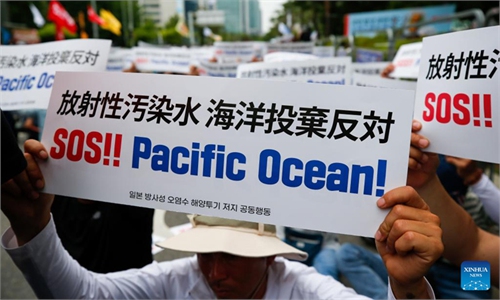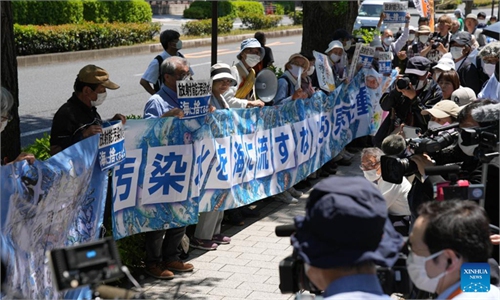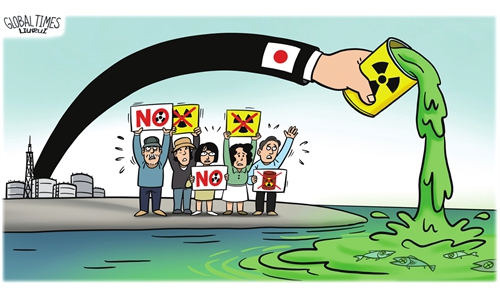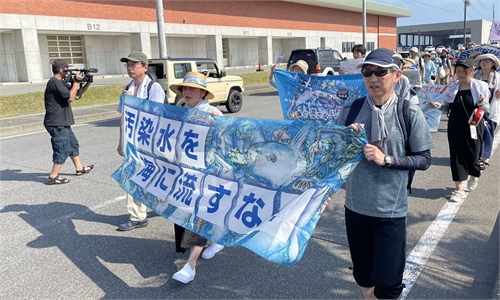Upscale sushi restaurants eye alternatives to Japanese seafood amid radiation testing
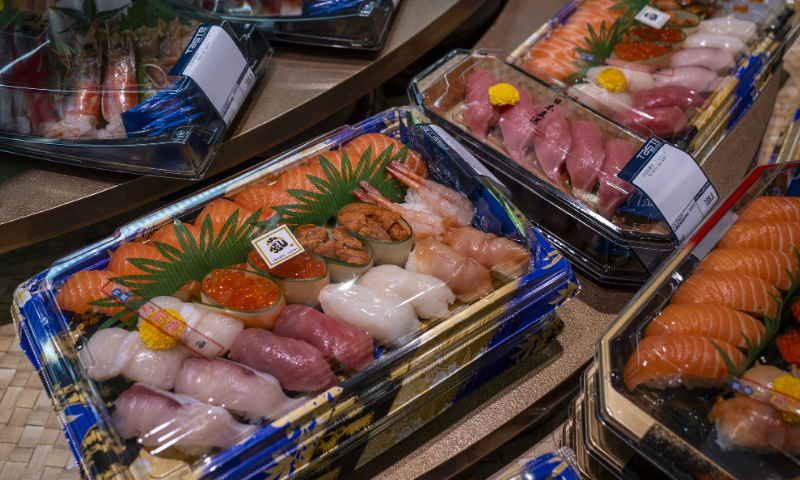
Sushi and Sashimi in a supermarket on July 11, 2023 in Hong Kong, China Photo: VCG
Some upscale sushi restaurants and supermarkets in top-tier cities such as Beijing, Shanghai and Shenzhen have stopped or reduced seafood imports from Japan after China's customs said earlier in July it would strictly review all documents for seafood imports from Japan.
As Japan continues pushing for its plan to dump nuclear contaminated wastewater into the sea, China's General Administration of Customs (GAC) on July 7 reiterated the ban on food imports from Fukushima and nine other regions in Japan and said it will rigorously examine certificates for food imports, especially aquatic products, from other areas of the country.
The Global Times learned from several upscale sushi restaurants on Friday that they are now using seafood from other countries to partly or completely replace seafood imports from Japan.
"Considering consumers' concerns about food safety, currently we don't use food imported from Japan. The tuna is imported from Spain and the shellfish are home-grown," said the chef in chief of Yiran, a high-end sushi restaurant in Beijing.
A staffer at sushi chain Sushiro in Shenzhen told the Global Times that all the restaurant's sushi and sashimi is domestically sourced, with only some dessert ingredients imported from Japan. Sushiro has branches in Southwest China's Chongqing and Chengdu, South China's Guangdong, Shenzhen, Foshan and Dongguan, Central China's Wuhan, and Hong Kong.
In Shanghai's Sushi Hitoshi where the average customer spends more than 1,000 yuan ($139), most of the seafood is domestically grown or imported from Canada or New Zealand, while a small amount of seafood imported from Japan has passed customs safety certification, according to its staff.
Japanese media outlet Fuji News Network reported on Friday that some Chinese supermarkets in Beijing and Shanghai have removed Japanese seafood products and replaced them with products from Russia, Canada and New Zealand.
Other Japanese media outlets such as Kyodo News and Nikkei Asia have reported on the effects on seafood exports from China's radiation testing, but the GAC said the tougher import measures are based on the concerns among Chinese consumers about the safety of imported Japanese food.
A staffer from the Shenzhen market monitoring authority, who did not wish to be named, told the Global Times on Friday that many of his colleagues are very cautious about seafood imported from Japan. "We have handled cases of illegally imported Japanese radioactive food in 2017 and kept a close eye on Japan's dumping plan. Some are worried the Fukushima nuclear-contaminated water could affect our home-made seafood," said the staffer.
"I would eat the food that is allowed to be imported with confidence. For those imports that are not permitted, I understand it's for safety reasons, and I'll go for alternative food products imported from other places," a native Shanghai resident surnamed Jia who is a fan of Japanese food, told the Global Times.
Jia also expressed concerns about the contamination risk in Japanese cosmetics. "There is no precedent for the discharge of such nuclear-contaminated wastewater. No one knows the extent of its impact or whether it will also harm the marine environment of other countries' waters," Jia noted.
